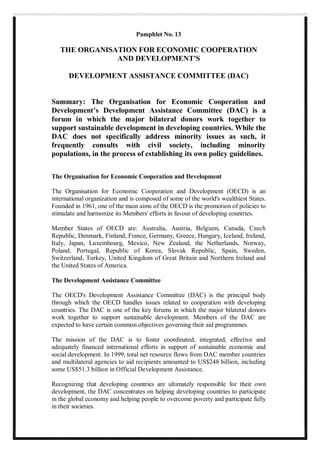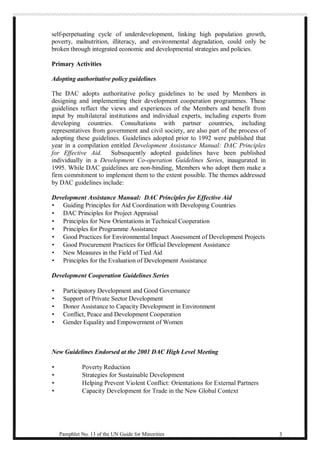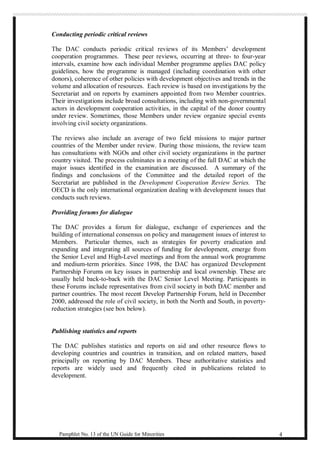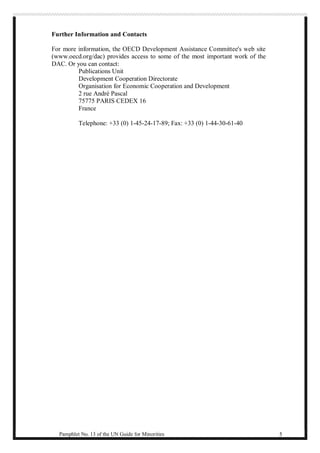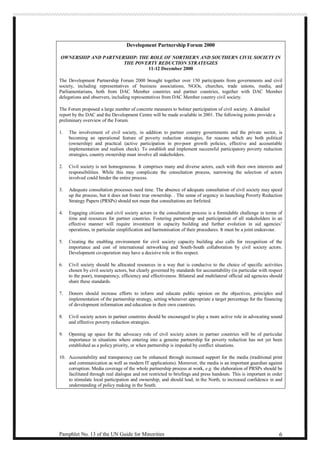The DAC is a forum within the OECD where major bilateral donors work together to support sustainable development in developing countries. While it does not specifically address minority issues, the DAC frequently consults civil society groups, including minority populations, when establishing policy guidelines. The DAC aims to foster coordinated and effective international development efforts through adopting policy guidelines, conducting reviews of members' programs, and providing forums for dialogue.
